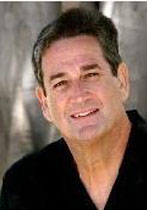By Rabbi Ben Kamin

SAN DIEGO–It wasn’t exactly news when sources back in my hometown of Cincinnati announced that the wrecking ball would finally bring down our venerable, exhilarating, dangerous, and soul-defining Woodward High School—a churning microcosm of America from which we graduated in 1970.
For some time, the school had stood ready for imminent demolition. A mausoleum of blood and poetry, of dance and dread, of cheerleaders and drug dealers, the old building, still defiant in its throes of commemoration and menace, it quaked silently adjacent to a newly minted, crystal-like, oval shaped structure called Woodward Career Technical High School.
It was almost like a concrete wake, the young edifice attending to the old. During my last visit a couple of years ago, my eyes ached in gratitude for this last vision of our turbulent temple. My friend Steve stood near me, as we recalled the social exercises of the front entranceway, the flirting, the fleeing, the text books heaving, the knives shining. We could hear the leggy cheerleaders and the myriad of others, hailing, singing, bellowing:
S-O-U-L, Soul team,
Sock it to me now!
UH UNGAUWA,
Woodward’s got the power!
Now say it louder!
And then my skinny marching band buddy Clifton would appear, leading the Pep Band in varsity elitism, a perfect soldier of tempo and grace, bowing up and down to precise taps, banging the bass drum and leading the way, with me and the others in tow. We would chant:
Hail to Woodward,
Hail to Woodward High.
Proudly wave our banner to the sky!
We’ve got the spirit, we’ve got the fight.
We’re out to win with all our might,
Hey Hey Hey!
Hush this brisk and drizzly afternoon, a generation later. Look: Here is the poplar tree that edges the grass hill out front. It was at this tree, right here that Clifton stopped me with his eyes that fateful morning after Dr. King died in Memphis. I walk along the receding lawn, gazing downward at the athletic field—where the band often rehearsed and the football team grunted in practice and bravado. Steve comes up and reminds me that, as part of Phys Ed class, we used to have to run a full lap round that field—a distance of one and quarter miles.
Now we see a solitary stone monument planted in memory of Peter Johnston, a Woodward graduate, an infantry man who died in Vietnam in 1966. It was dedicated there by his family—a rock, a name, a war, a country brought to its knees by the implication of this lonely marker on a school yard where once a throng of scared and angry black youngsters poured out pain and venom while the preacher’s blood dried at the Lorraine Motel in Memphis.
Across the way, the shopping center once called Swifton—previously an amalgam of five-and tens, minor department stores, chili dogs, baseball caps, photo booths, the “Honeycomb” confectionary stand, and, when Woodward kids rioted, stones shattering glass. On its parking lot we who had successfully earned Ohio driver’s licenses parked and showed off our GTOs and Mustangs. The gravel and the air above it, even with the synthetic, renamed stores and eateries, still lay and hung broken and soulless.
Wrecking ball—be not proud. The history we suffered and redeemed there will always fill our hearts.
*
Rabbi Kamin is a freelance writer based in San Diego. He may be contacted at ben.kamin@sdjewishworld.com